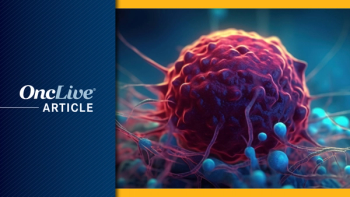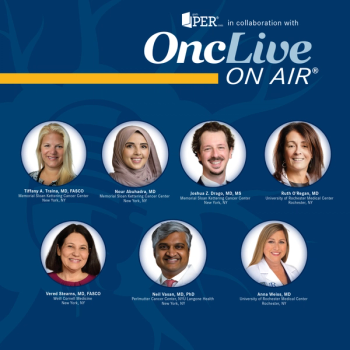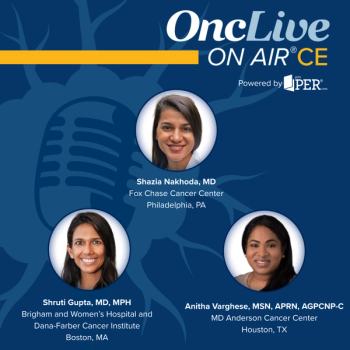
Bispecific antibodies in multiple myeloma: revolutionizing blood cancer immunotherapy
Over 180,000 people are diagnosed with multiple myeloma (MM) globally every year, and these patients and their loved ones face a difficult journey with this currently incurable disease.1 As the second most common type of blood cancer,2 a diagnosis of MM can have devastating physical and emotional impacts on a person’s life. With an estimated 5-year survival rate of 61%,3 patients often cycle through several rounds of therapy, and after each relapse, there is a higher risk of treatment resistance, shorter remission, and shorter duration of response.4,5
Patients with relapsed or refractory multiple myeloma (RRMM) have particularly poor outcomes.6 These patients often repeat treatments within the same classes of therapies they became refractory to and can face barriers to accessing novel therapies in the later-line setting, such as chimeric antigen receptor T (CAR-T) cell therapy that requires specialized facilities to administer and long manufacturing lead times.7,8
Recently, new and investigational treatments aim to change the prognosis for these patients by countering the mechanisms of MM cellular immune evasion and therapy resistance.
BCMA as a leading therapeutic target for bispecific antibodies in MM
In recent years, promising research has highlighted the value of targeting MM cell surface antigens such as B-cell maturation antigen (BCMA), leading with bispecific antibodies (BsAbs).
BCMA is an ideal therapeutic target because it is selectively expressed by myeloma cancer cells compared with nonmalignant cells.5,9,10 Its overexpression and activation can upregulate critical pathways for tumor growth, metastasis, and immunosuppression, which can promote disease progression and drug resistance in MM.5,9,11
BCMA-targeting BsAbs can overcome this resistance in patients who have become refractory to other therapies.7 By combining two different binding arms – one that binds to the BCMA antigen on the surface of MM cells, and one that binds to CD3-expressing T cells – BsAbs are immune engagers that promote the interaction of these two cell types, enabling the patient’s own immune system to kill cancer cells.12 A number of BCMA-directed therapies, including BsAbs, antibody-drug conjugates, and CAR-T cell therapies, have yielded significant clinical benefit for patients with RRMM.5,13,14
On the basis of clinical trial results, BCMA-targeting BsAbs are being approved by regulatory agencies around the world and are being rapidly adopted by healthcare professionals and patients who have exhausted all other options. Now, the focus is investigating the use of BCMA-targeting BsAbs in additional MM patient populations to bring this innovation to even more people who desperately need additional treatment options.
This is an encouraging time, with scientific innovation helping to overcome some of the biggest challenges in MM today, particularly for those who have relapsed or become refractory to treatment. For patients with RRMM, each day matters – earlier detection and more effective treatment options are critical.
Accelerating the next generation of BsAbs
At Pfizer, we are rapidly progressing potential new standards of care through immuno-oncology biologics, leading with BsAbs, including those targeting BCMA. We are applying our substantial expertise and experience in oncology to expedite the discovery and clinical development of BsAb treatment approaches and innovative treatment combinations. In addition to applications in MM, BsAbs hold promise as first-in-class therapeutics across various types of solid tumors. Our vision is a world where people with cancer can live better and longer lives. We won’t stop until we outpace, outsmart, and outmaneuver this disease at every turn.
For more on Pfizer’s commitment to accelerating breakthroughs in cancer:
References
1 World Health Organization: Globocan 2020: Multiple Myeloma. Available from:
2 Myeloma Patients Europe. Myeloma A Patients Guide; Updated May 2022. Available from:
3 National Cancer Institute. Surveillance, Epidemiology, and End Results Program. Cancer Stat Facts: Myeloma. Available from:
4 Sonneveld P, Broijl A. Treatment of relapsed and refractory multiple myeloma. Haematologica. 2016;101(4):396–406.
5 Shah N, Chari A, Scott E, Mezzi K, Usmani SZ. B-cell maturation antigen (BCMA) in multiple myeloma: rationale for targeting and current therapeutic approaches. Leukemia. 2020;34:985-1005. doi:10.1038/s41375-020-0734-z
6 Usmani S, Ahmadi T, Ng Y, et al. Analysis of Real-World Data on Overall Survival in Multiple Myeloma Patients With ≥3 Prior Lines of Therapy Including a Proteasome Inhibitor (PI) and an Immunomodulatory Drug (IMiD), or Double Refractory to a PI and an IMiD. Oncologist. 2016;21(11):1355-1361.
7 Ramasamy K, Gay F, Weisel K, et al. Improving outcomes for patients with relapsed multiple myeloma: Challenges and considerations of current and emerging treatment options. Blood Rev. 2021;49:100808.
8 Zhang X, Zhang H, Lan H, et al. CAR-T cell therapy in multiple myeloma: Current limitations and potential strategies. Front Immunol. 2023;14:1101495.
9 Caraccio C, Krishna S, Phillips DJ, Schürch CM. Bispecific antibodies for multiple myeloma: a review of targets, drugs, clinical trials, and future directions. Front Immunol. 2020;11:501. doi:10.3389/fimmu.2020.00501.
10 Nadeem O, Tai Y-T, Anderson KC. Immunotherapeutic and targeted approaches in multiple myeloma. Immunotargets Ther. 2020;9:201-215. doi:10.2147/ITT.S240886.
11 Tai YT, Anderson KC. Targeting B-cell maturation antigen on multiple myeloma. Immunotherapy. 2015;7(11):1187–1199.
12 Swan D, Murphy P, Glavey S, et al. Bispecific Antibodies in Multiple Myeloma: Opportunities to Enhance Efficacy and Improve Safety. Cancers (Basel). 2023;15(6):1819.
13 Cho SF, Lin L, Xing L, et al. BCMA-targeting therapy: driving a new era of immunotherapy in multiple myeloma. Cancers. 2020;12:1473.
14 Cho SF, Anderson KC, Tai YT. Targeting B cell maturation antigen (BCMA) in multiple myeloma: potential uses of BCMA-based immunotherapy. Front Immunol. 2018;9:1821.




































